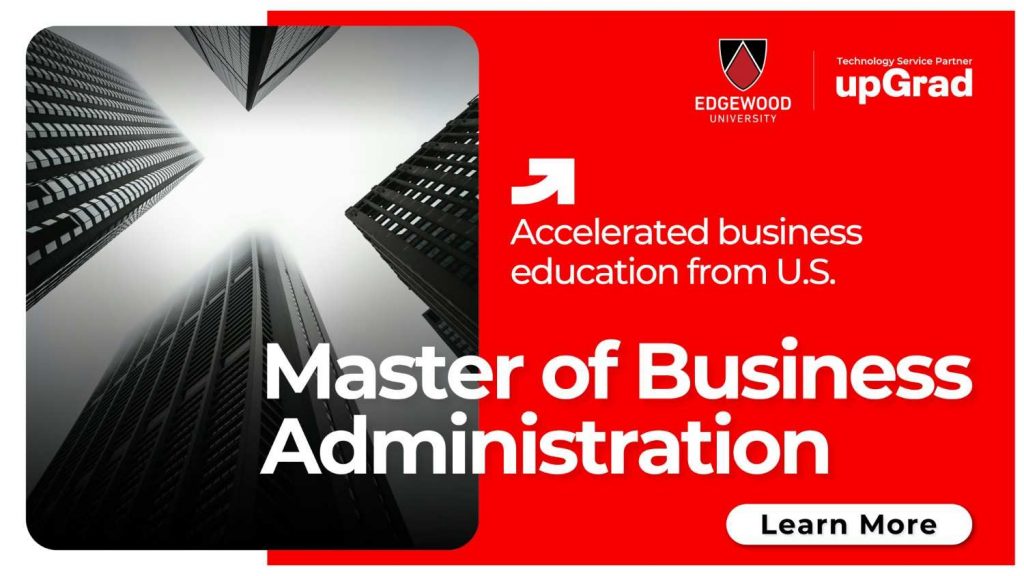Master of Business Administration (MBA) interviews are a crucial part of the admission process at business schools in Canada, as they provide significant opportunities for these institutions to assess candidates beyond what they present in their application materials. Detailed preparation can significantly improve a candidate’s confidence and enhance their chances of gaining admission to the country’s leading business schools. This way, they can also land the best jobs and earn high salaries, such as an average annual base pay of CAD 89,000 a year.
This blog will discuss the most common MBA interview questions asked in Canada and guide how students can prepare for them. It will also highlight the trends in these interviews that applicants should be aware of before appearing in them.
Take your skills to the next level — Explore Online MBA Courses
Common MBA Interview Questions Canadian Students Should Prepare For
An essential part of MBA interview prep is being aware of the various types of questions that interviewers may ask during the interview. There are three broad categories – general questions, resume-focused questions, and situational questions – and each plays a different role in these interviews.
| Broad Types of MBA Questions | Specific Question Areas |
| General Questions |
|
| Resume-Focused Questions |
|
| Situational Questions |
|
Self-Description
Interviewers asking candidates to say a few words about themselves is one of the most common questions, and this is why it is such a regular part of MBA mock interviews as well. One of the best ways to address such a question is to prepare a written statement in response. Students can craft their answers in such a way that shows the abilities they have to succeed in the program
Working with Different Personalities
Companies often ask candidates to describe times when they collaborated closely with people who had completely different personalities, making it one of the common MBA interview questions. By answering this question, candidates can demonstrate their ability to work effectively with others.
Most Challenging Academic Experiences to Date
Such a question during an MBA admission interview can be a double-edged sword, as it might highlight the candidate’s weaknesses. Still, they can turn it around by showing how they have overcome similar barriers in the past. They can also discuss the relief they felt in overcoming those problems.

Failure to Meet Others’ Expectations and Resolution of Such Failure’s
These MBA interview questions offer students the opportunity to discuss tough challenges they have faced in life and narrate how they overcame them. Everybody experiences shortcomings in their lives – through this question, the interviewers want to know how candidates have used such adverse events as learning opportunities.
Taking Advantage of Resources the Institution Will Offer
By answering this question, candidates can demonstrate to the interviewers that they have a thorough understanding of their business administration program and show how they plan to utilize their skills and knowledge to advance their careers. Colleges and universities offering MBA programs always wish their students the best success because it reflects well on their overall quality and standing.
Also Read: Job Interview Questions Canadian Employers Commonly Ask and How to Answer Them
Trends in MBA Interviews Canadian Applicants Should Know
An essential part of MBA interview tips for candidates in Canada is to be aware of the trends in these interviews, allowing them to prepare more effectively for the process. In this context, they must focus on demonstrating clarity of goals, highlighting how they can potentially contribute to the MBA community, and showcasing how they will align with the school’s culture.
- Focus on Authenticity.
- Emphasis on Cultural Fit.
- Importance of Behavioral Questions.
- Clarity of Goals.
- Active Engagement and Listening.
- Thoughtful Questions.
- Criticality of Preparation.
Also Read: Top Interview Tools Online to Boost and Perfect Your Job Interview Skills
Explore upGrad’s MBA Programs for Canadian Students
The online MBA programs available through upGrad are great for students preparing for interviews, as they offer ample interview assistance, including sample MBA questions that interviewers might ask. They also conduct mock interviews and provide personalized sessions and career mentorship as part of their career assistance services.
- Masters of Business Administration (MBA), O.P. Jindal Global University
- Master of Business Administration, Golden Gate University
- Master of Business Administration, Edgewood University
- Master of Business Administration (MBA), Liverpool Business School
- Dual Degree MBA and DBA, Edgewood University
🎓 Explore Our Top-Rated Courses in Canada
Take the next step in your career with industry-relevant online courses designed for working professionals in Canada.
FAQs on MBA Interview Questions & Tips For Canada Students
Q: What are the most common MBA interview questions?
Ans: Typically, MBA interview questions focus on the aspirant’s motivations for pursuing the program, leadership experiences, career goals, and ability to handle challenges.
Q: How long should my answers be during the MBA interview?
Ans: For most MBA interview questions, candidates must attempt to complete their answers within a couple of minutes, as this allows them to provide precise and comprehensive responses.
Q: What are red flags that interviewers watch for?
Ans: Interviewers are alert to red flags during the hiring process, including dishonesty, lack of clarity, unprofessional conduct, and disorganization.
Q: Can I prepare for MBA interviews without coaching?
Ans: Yes, aspirants can prepare for interviews without coaching, but coaching is beneficial for interviews as it offers structured preparation and guidance.
Q: Are MBA interviews more behavioral or technical?
Ans: MBA interviews are more behavioral than technical, as they primarily focus on understanding the applicants’ past experiences and how they have handled specific situations.




















